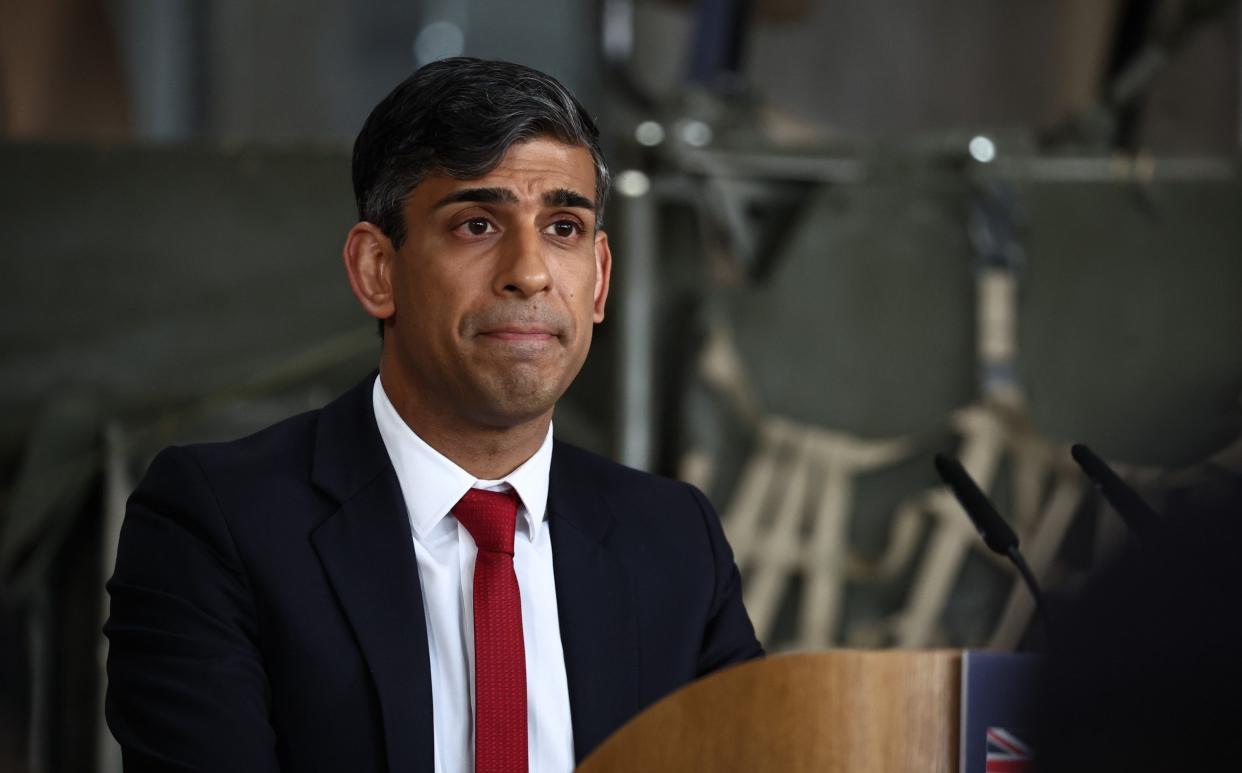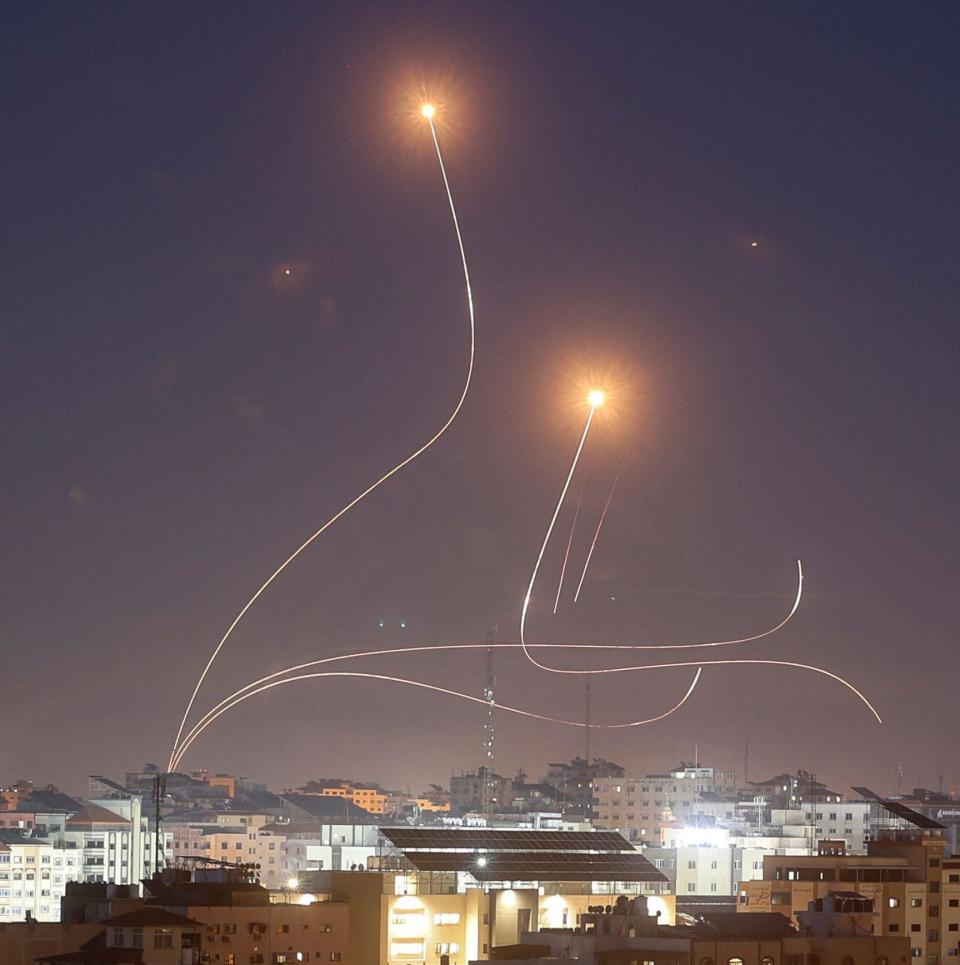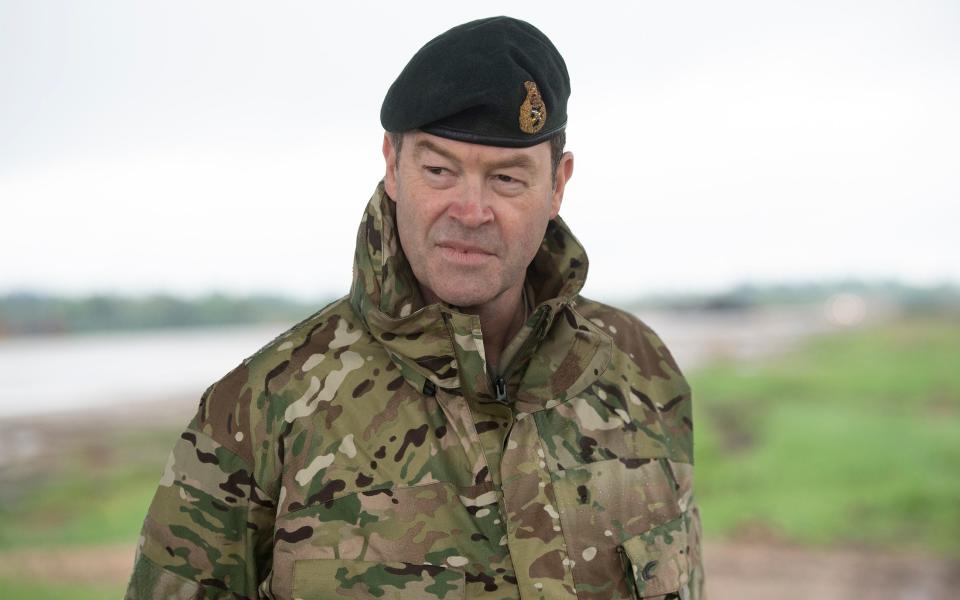How Sunak’s defence pledge might be spent

Rishi Sunak’s pledge to increase defence spending to £87 billion by the end of the decade has been hailed as a vital boon for Britain’s security.
Detailed within the Prime Minister’s announcement on Tuesday were promises to invest £10 billion in the production of much needed munitions, boost research into modern warfare technology and pay for more air defences, drones and ammunition for Ukraine.
It comes after military leaders warned of the pressing need to invest more in the UK’s Armed Forces.
Since the end of the Cold War, Britain has neglected its defence expenditure, naively assuming peace in Europe was secure and land wars a thing of the past.
While still one of the highest spending European nations in Nato, the UK has not only slipped behind on maintaining enough munitions to protect itself in the event of war but has also failed to maintain personnel numbers, which have fallen to a record low.
Now, in an election year, Mr Sunak has pledged to turn the tide with a “landmark” investment.
Citing the success of Britain’s own DragonFire laser weapons system, which can fire at any target visible in the air at a cost of around £10 a shot, a chunk of the money will be used to ensure more investment in the research and development of new weapons systems such as Directed Energy Weapons or Hypersonic Missiles within the UK.
In 2021, a document entitled the “Defence and Security Industrial Strategy”, set out how Britain had to view the defence industrial base as a strategic asset in its own right, so that it would harbour vital areas of domestic expertise.
The Government’s decision to commit such a large portion of this new money to loading up Britain’s stockpiles of next-generation munitions appears two fold. Firstly, by making as much as possible in the country it allows the UK to maintain the ability to support its own Armed Forces in the field. Secondly, the amount of money being poured into the area also suggests the Government has taken heed of a recent year-long review by the Commons defence committee, which warned that the UK would not achieve strategic readiness and that it desperately needed a stockpile of weapons and ammunition.
Prof Malcolm Chalmers, the deputy director of the Royal United Services Institute, warned that the UK has spent the last 20 years focusing on counter insurgency with campaigns in Iraq and Afghanistan to the detriment of other areas of defence, such as ground based air defence. He also cautioned it had grown weak in artillery and in stockpiles of munitions for the UK’s surface fleet.
Just last week, Penny Mordaunt, the leader of the House of Commons, called on Mr Sunak to install an Iron-Dome missile defence system over the UK in light of the ongoing violence in Gaza and Iran’s recent drone attack over Israel.

Prof Chalmers told The Telegraph that more money needed to be invested in “munitions stockpiles and general readiness for conventional conflict with Russia”.
Britain’s “first priority” with this extra funding must be to ensure the UK continues to make a stronger “contribution to European deterrence of Russia in Europe”, he added.
The key to this lies in who will become the next president of the United States of America, as they will be under pressure to shift American military presence to the Indo-Pacific, away from Europe.
“We have structured our defence that the US will provide the backbone but that is an increasingly risky assumption,” Prof Chalmers added.
The USA spends the most money on defence out of all Nato members. In 2022, it spent 3.31 per cent of its GDP on defence (£670 billion), and spent more than twice as much on defence that year than the rest of Nato combined.
Nato has set a guideline for its members to spend at least 2 per cent of GDP on defence, with Britain having met this guideline every year since it was set in 2006.
But since the end of the Second World War, when in 1945, 52 per cent of the UK’s GDP was spent on defence, the figure has declined at pace, bar a slight increase in 1952 when it rose to almost 10 per cent amid concern over the Korean war.
Away from the expensive weapons and stockpiling, the other fight the Ministry of Defence has on its hands is its war on talent.
Earlier this year, this newspaper revealed that Gen Sir Patrick Sanders, the head of the army, was to warn that the British public may need to be called up to fight if Britain goes to war with Russia because the UK’s military is too small.
His comments came amid a retention and recruitment crisis that has been threatening to engulf the military. Recent figures have shown that three-quarters of would-be recruits drop out of the military’s application process because it takes too long, while warships are having to be decommissioned because there are not enough sailors to crew them.

Sarah Atherton, a senior Tory MP, said that any new defence funding should be spent on the military’s people.
“We need a people proposition because we can have all the exquisite equipment we need but if we don’t have the personnel to fly, drive and work that equipment we are not operational,” Ms Atherton said. “Our retention and recruitment is such now that it’s impacting operational capabilities. Any uplift on defence spending should be on people. Pensions, salaries, where they won’t leave the military and go into private careers.”
Writing in The Telegraph on Tuesday, Adml Sir Tony Radakin, the chief of the defence staff, stresses “the need to focus on addressing issues that matter to our people”, from obstacles that stop people joining to help military families with childcare.
Recommended
Britain can position itself in dangerous era thanks to defence spending commitment
Sir Tony also writes that the increased investment can strengthen Britain’s commitment to Nato, including the renewal of the UK’s nuclear deterrent, while acquiring more F-35 fighter jets and building more submarines and warships.
Sir Jeremy Quin, the chairman of the defence select committee and former defence procurement minister, welcomed the boost. “One of the learnings from Ukraine is that to deter we need to ensure we have sufficient munition stockpiles to withstand prolonged high intensity conflict,” he said. “We need to broaden our defence industrial base to meet the new challenge and this investment, including its focus on developing high-end technologies to over-match our adversaries, will boost confidence in the sector.”

 Yahoo News
Yahoo News 
